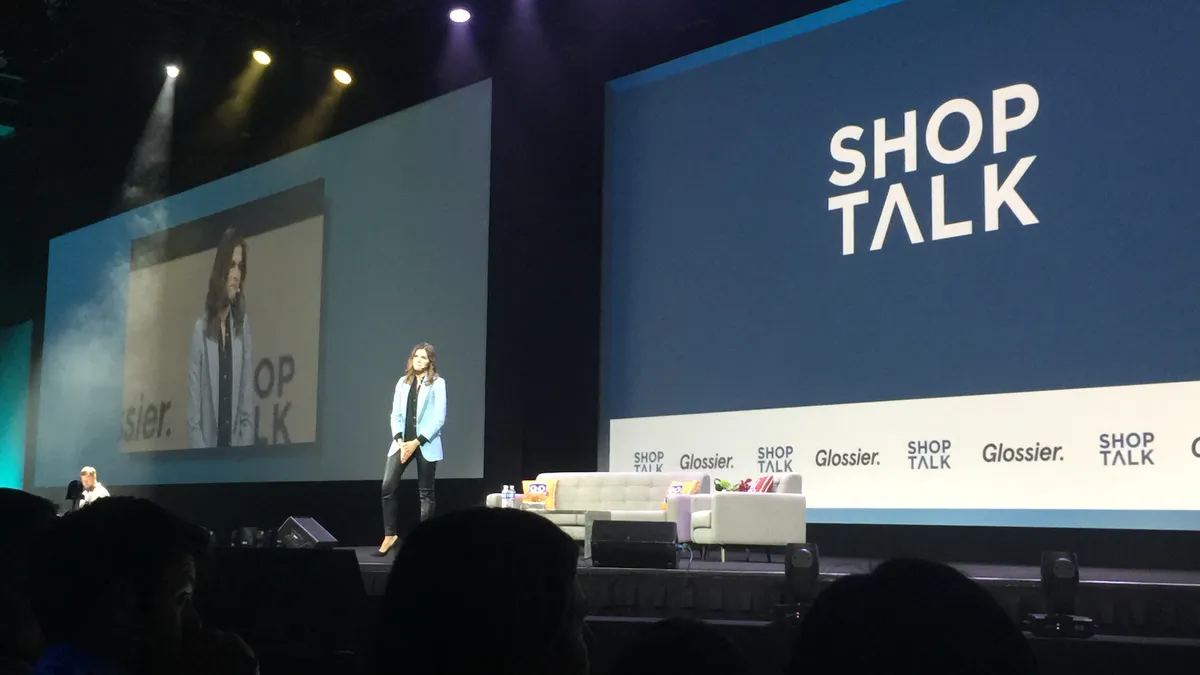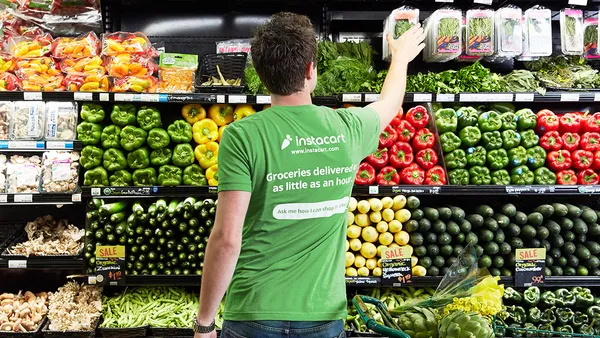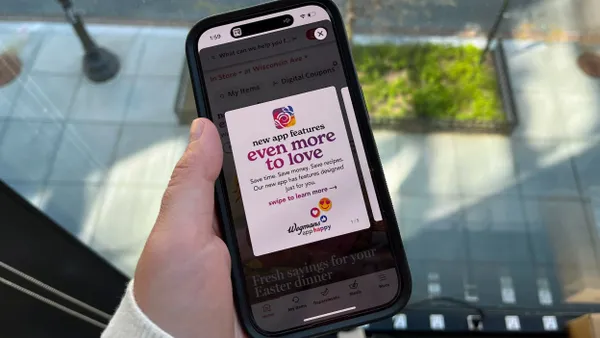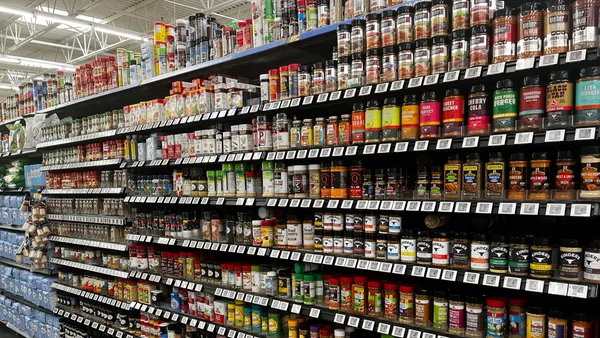Dive Brief:
- Several food and retail industry conferences have announced they’re providing online presentations, virtual booths and other tools to replace the in-person shows they were supposed to stage this year.
- Efficient Collaborative Retail Marketing (ECRM) announced last week it has developed a virtual platform for its retailer-supplier meetings, allowing its monthly trade sessions to continue as planned. Shoptalk has begun hosting small-group sessions online and will feature online presentations from more than 20 speakers this week, while the United Fresh Produce Association will hold a live online event in mid-June to replace its annual summer trade show.
- Consulting firm Forrester noted in a recent post that digital trade shows offer an opportunity for companies to recoup money and make valuable connections. But it said organizers need to offer unique value for attendees rather than just an online version of the scheduled show.
Dive Insight:
Numerous trade shows have been canceled this year due to the pandemic, but the desire among retailers and suppliers to connect — and for show organizers to recoup losses — remains strong. As COVID-19 continues to impact the food industry, the willingness to share best practices, learn about new industry developments and to just commiserate has arguably grown.
Digital trade shows can’t fully replicate the live demos, sidelines networking and product sampling that take place at an in-person event. They can, however, approximate many of the main elements like presentations, roundtable discussions and breakout sessions. Last week, Shoptalk held a series of “virtual tabletalks” that placed retailer and brand representatives in small four- to six-person groups to discuss the impact of COVID-19 on their business. This week, the show platform will host more than 20 livestreamed keynote speeches.
In June, United Fresh Produce Association will offer attendees of United Fresh Live! keynote presentations, networking events, roundtable discussions and even a virtual show floor complete with virtual booths where representatives can share product information and, according to a press announcement, “make the same connections one would at an in-person event.” Vice president of marketing and communications Mary Coppola recently told sister publication Food Dive that around 1,000 attendees have so far signed up for the show, and that 40% have not attended the United Fresh show in the past.
In a statement, Tom Stenzel, president and CEO of United Fresh, said industry buyers and managers have become so accustomed to Zoom meetings and remote presentations, a virtual tradeshow should feel intuitive.
“We’re all online, with video streaming, face-to-face chats, and group interactions that, just a month ago, we didn’t know how to do,” he said.
In March, ECRM launched its virtual platform for connecting retail buyers and suppliers, which includes seller presentations as well as one-on-one conferencing. So far, more than 1,000 buyers have participated in the program, the company noted.
Analysts Laura Ramos and Nick Barber with Forrester say organizers shouldn’t just translate their legacy shows into video presentations and conference calls. They should invest in technology and develop new tools and programs that use the virtual format as an advantage.
Live virtual events are a way for organizers like United Fresh to replicate their legacy shows, but the technology platforms required to pull these off are expensive and may not be a good fit for every event, Forrester noted. Virtual events tend to be a good fit for large shows featuring product launches, while smaller events can run less-expensive livestreams and videoconferencing technology.
Digital trade shows also need to be able to hold attendees' attention with interactive elements like live polls, Forrester noted.
“Can you make your online version exclusive and special, not just a virtual version delivered to salvage sunk costs?” Ramos and Barber wrote.
Earlier this month, marketing firm Insignia Systems hosted a virtual product pitch contest for food suppliers. The event, which was supposed to take place at Expo West in early March, was "Plan C" for the company after that show was canceled and a plan to host the competition at the company's Minneapolis headquarters fell through due to travel restrictions, according to Adam May, chief growth officer with Insignia Systems.
Virtual events like the product contest are a good stand-in, May said, but nothing can replicate the energy of shows like Expo West.
“Fifty percent of it is the hanging out, the networking and camaraderie that happens in that space," May told Grocery Dive.













